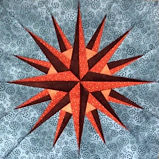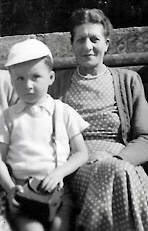Des Lewis will be 77 years old on 18 January 2025
Those who have read these episodic brainstorming reviews of mine must know they are very personal — rough-shod and spontaneous. Synchronicity and anagram mixed. I know they are not professional, never potentially publishable other than in the madness of my head, but I do hope they show grains of dark truth and cosmic panache.

These Des Lewis Gestalt Real-Time Reviews were founded in 2008.

‘What’s the loveliest word in the English language, officer? In the sound it makes in your mouth, in the shape it makes on the page? What do you think? Well now, I’ll tell you: E-L-B-O-W. Elbow.’ — THE SINGING DETECTIVE

“How shall a man find his way unless he lose it?” — Walter de la Mare

To any current genre author I have reviewed before — if you have a new story recently published or soon to be published in a collection or anthology, you may have a review by me of the story that also showcases where it is published. See HERE. (This is because I am no longer well enough to review as many books as I once did.)
Fresh Fictions, free to read HERE.
No AI input in preparation of my texts whatsoever.
THE NEW NONSCENIC
Photos here: https://conezero.wordpress.com/2024/02/24/d-f-lewis-recent-photos-1/

Hope you enjoy it, Des!
Morris Expedition, Days Nine and Ten
Amazingly (even for me), about an hour ago, I just finished reading and reviewing here the first story in another book that I am simultaneously treating with my dreamcatchers: a story built on a similar adventure story-telling template as this shorter one…where in both (otherwise different from each other as they are) we instinctively knew some horror or monster was coming.
I dare not spoil them by not spoiling them – because something is coming…the rest of each book. Strange gateways.
An hour or so later: https://dflewisreviews.wordpress.com/2014/06/24/fearful-symmetries/#comment-3065
Referenced from here today: https://dflewisreviews.wordpress.com/2014/07/16/ana-kai-tangata-scott-nicolay/#comment-3069
…and so the rest of the book comes, with involuntary gear-changes….
F Bomb
“This isn’t a virus any more than it’s a meme.”
An intriguing, compelling, slowly accretive (like the subject-matter of its plot as well as the plot rhythm itself), philosophically pent-up, simply ingenious, page-turner of a story that, genuinely, should be more well known if this is the only place it has been published.
It is a story of ‘abrasive punctuation’ that slowly halts us in our tracks because we as human beings are not good for those tracks.
A gestalt real-time review of a whole book, like this review, is slowly accretive, too, a Tourette’s of the intellect, where my theories about the text appear even before I’ve thought of them or at least thought them through. The halting, resistant, blocked-in triangles as markers, dividers and ornaments in the typography of this book make me think that it is being controlled by the Illuminati, if slowly.
Seriously, a great story.
The Hotel Guest
“The computer screen was dark and its keyboard crusted with something that had dried to a thick, glutinous yellow.”
I am curious, yellow, that there are managed to be two F words squeezed through as enunciated: punctuating this cloying work of a Fantasycon hotel, on the very day (today) that a new Fantasycon starts for real. Hope everyone enjoys themselves and that the hotel is better than the one depicted here!
By saying all that, I do not mean to belittle the seriousness of this very effective extended, word-entropic portrait of a decaying hotel, complete with paranoiac graffiti or aide-memoires to self amid marital guilt and a steely determination to be a real man against the onset of otherwise such brilliantly conveyed nightmarish visions by another version of that man as author writing about a different man as author of what he sees and the ‘flat’ exteriors seen from the hotel windows as a punctuation of emotion, like the earlier punctuating F bombs, I guess, now made gooey when not enunciated, a halting, resitant goo.
I read and reviewed the next story in February 2010 and I copy and paste below what I then wrote about it (from here, if you want to see the context):
The Knitted Child
“…by the pattern of interlocked stitch and thread.”
Roach’s object (of fetich) in the previous story becomes another here, in this densely textured nocturne of prose – here the object being a symbol of loss as well as of hope, rather than crude obsession. An object that is a connecting link or gift of deeply dark poignancy between generations (four generations, i.e. about to die, middle-aged, young and never to live). An object that is, in some ways, its own fetich, one with its own soul (a soul which is that of us readers?). I once knew a distant relative in the old days who had merely a shapeless blanket that long lived similarly for her as the object in this story does. I now wonder – did that shapelessness itself yearn for the shape that ‘story’ gives it – for us to love because, unknowingly, it loves us? Every woman eventually learns to cross her own river’s curse, perhaps, towards the personal open-ended ending of ‘story’ that is hers alone? Beautiful stuff. (23 Feb 10)
The Drunks’ Totem
“…feeling a resistance to his passage that was impossible but was real, and only his great weight helped him overcome.”
This is a vividly crepitating story of an obese man who walks, so that he is not watched, in a pre-dawn ritual of exercise by the eerie river – and surely, in the light of this book’s context so far, it is not an accident that his name is Fuchs!
And indeed there is the exponentially creeping ‘wicker man’ atmosphere as he faces accretively scarier forms of spiky ‘found art’ that he calls totems which, he believes, were built earlier by mocking midnight drunks… each of his steps, for me, forming one big fat F bomb “increment by tiny increment.”
Implementing the Least Desirable Solution
“…it was boring. / And lethal.”
The title seems to imply Sod’s law is deliberate. But, otherwise, unless I am missing something, there does not seem much point to this laboured story of a captured King Kong type Kaiju that is brought back and caged for commercial purposes amid a dragging psychological tussle between it and the man who captured it. (When things start to go wrong, it leads to some more F bombs, as another obesity yearns to escape and exercise?)
Traffic Stream
I read and reviewed this story about two characters called Bird and Samuels in 2010 and I copy/paste my original comments below from the context here.
—————————–
A very effective story that reminds me of when I was myself a young business blood travelling by office car. But then, in the Seventies, I had no mobile or SatNav. I did relate strongly with this story of a nightmarish journey told by reportage of communication between traveller and the one expecting him …. leading to a Spielbergian Duel-in-kaleidoscope. I had at least one such journey myself. And it was good to role-play it again for real within a two-way filter of narration. (1 Apr 10 – three hours later)
A Man of Ice and Sorrow
I read and reviewed this story in 2010 and I copy/paste my original comments below from the context here.
————————————
The few stories of SKU I’ve read have always impressed me greatly and this is no exception. It tells of a blighted family, Edward Mains (the main protagonist) and his son Johnny Mains and his wife Elise Mains. Earthed into the soul by snowmen. Actually – and I have no doubt about this – the story is a very clever variation on the theme of Vigeland Park, Oslo, i.e. the plaintive arms of statues & sculptures in coiled embrace – pillars of people – families in mutual retribution – but all here, within SKU’s fiction, in the shape, not of sculptures, but, yes, of snowmen. The prose is stitched with complexes of emotion and bereavement and sad separation of a married couple who couldn’t face destiny.
It’s Ok making sure one’s own house is insured against hiatus of electrical, gas or water supplies but when the mains blow on the borderline between one’s jurisdiction and just beyond it, then the real problems arise…. Moreover, the best description of snowmen I have ever read. (21 Aug 10 – another 3 hours later)
Read today accidentally out of order!
The Seven People You Don’t Meet Today
This is a soul-crushing, yet strangely engaging, story about someone with perhaps mild Aspergers who links the people he sees distantly most days while walking to the station for his regular commute to work, links them by his personal nickname for them as constituents of whether he will have a good day or not in the office, so if one or more of these people are missing or are slightly late or off kilter, that day’s initial broken routine bodes ill for the rest of the day. Soon after reading it, I noticed that I had accidentally missed out the previous story from its correct order in the book (I shall read it next). This abrupt discovery seemed somehow to make this story feel even more soul-crushing for me. (The protagonist’s work and the way he felt it sliding away from him was very convincing.)
Mami Wata
“Mine operators, underground or overground, tend to look like the thing they mine eventually.”
This, in many ways, following the reading of the story I read yesterday out of the book’s set order, carried on its soul-crushing for me, like mine grinders crush coal. The concept of grey and brittle shadows, too, instead of the healthier, blacker shadows that we have where we live in the UK, shadows not like the shadows we now know cluster around the Zambian mine in this story, not shadows of mine. The haunting water demon threatens the biggest F Bomb of all, literally, for me as she tempts me with her enticing sex, with my having visited this African set of mines to test out its slow motion entropy and why the local manager can’t resolve its meagre yield of mining. Resonant with the mining for white Angevin in my own novel Nemonymous Night, it seems as if this story was written for me specifically, although I know that is impossible. At least the story’s ending seems to lift the soul-crushing slightly, slowly, hopefully – and makes my reading of it out of order somehow predetermined. A Mami Wata who follows my broken routine. Otherwise, it would have been a routine story of a haunting with sexual currents.
Peek A Boo
“It made Mummy jump and Daddy said a rude word, apologising straight away because he knew Mummy didn’t like rude words.”
A short short as a remarkable coda to the gestalt of this book. Half Kaiju, half ‘shadow thing’ — as if a blend from Zambia’s shadows, and ‘the least desirable solution implemented’ — attacks a neighbourhood where a small girl ‘witnesses’ from the kitchen cupboard what it does to her small brother, its having earlier expunged her mother and father. It is as if the solution to the worldly worry and often despair of steadfastly bringing up a family is the conjuring up of even more despair, utter despair, irreparable despair and emptiness. And that somehow brings a smidgen of hope….and only a peek into a book like this one can conjure such hope, via the dying eyes of one of those for whom you once hoped so much.
end